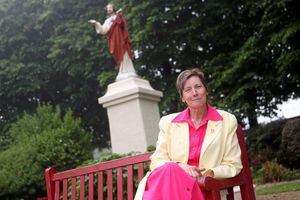Doubt over extent of opposition to Education Law
CALLS to delay a new Education Law made on behalf of school management committees are not supported by all their members.

Deputies received an email on Tuesday which informed them that management committees in the primary and secondary phases of education wanted them to consider a sursis – a delaying motion – to allow more time for consultation on proposals from Education, Sport & Culture which the States have been debating this week.
Former Blanchelande College principal Lesley Le Page, who sits on committees at St Martin’s Primary and Les Beaucamps High, said yesterday that she knew of ‘no major objections to the new Education Law’.
Mrs Le Page attended a meeting late last year at which the proposals were discussed by about 15 members of school committees.
‘There were certainly some attendees who objected strongly to various details, especially changes to how schools committees are currently run,’ she said.
‘However, no consensus was reached and no one was appointed to speak on behalf of all committees, which act independently of one another, and which were not all present at this meeting.
‘Since then there has been more information and discussion meetings with ESC for school committees members at which there was lively debate, but not all committees were represented and there was certainly no conclusions on behalf of all the committees.’
Mrs Le Page said a number of her colleagues on committees felt they had been ‘misrepresented’ by the email sent to deputies and were ‘very unhappy’.
She suggested that objectors were in ‘a small minority’.
The email indicated there was little support for the proposals among the committees.
‘Not one of the school management committee members spoke up in support at Education’s law presentation recently,’ it said.
‘Since then some of the management committees have met with all their members, who continue to oppose many parts of the new Education Law.’





